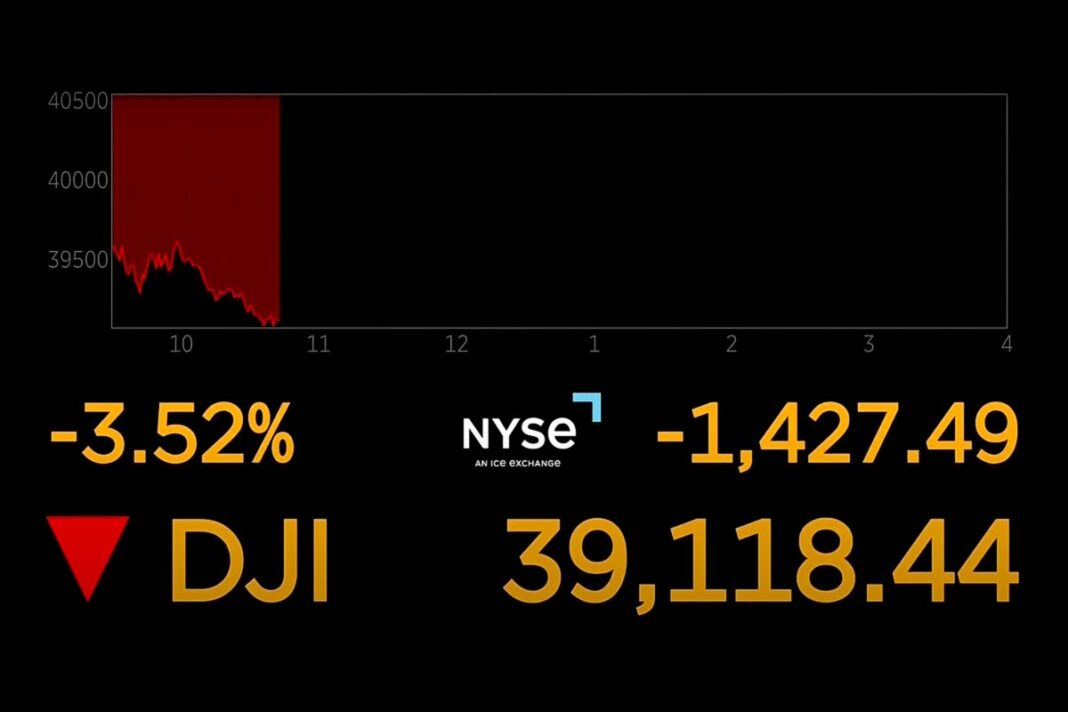During Friday morning trading, the three major U.S. stock indexes saw more declines.
The Dow Jones Industrial Average dropped more than 1,500 points during Friday morning trading, a day after being down 1,600 points amid a broad swath of tariffs unveiled this week.
Aside from the Dow drop, the Nasdaq Composite shed more than 5 percent on Friday, following a 6 percent drop a day earlier. The S&P 500 also saw a 4.7 percent decline in the morning period, following a 4.84 percent drop on Thursday. The volatility index, or VIX, was also up by 34 percentage points.
This week, the Trump administration declared an economic emergency and imposed a 10 percent tariff on nearly all countries and territories. It has set even higher levies for about 60 nations that it says are the “worst offenders.”
The 10 percent global tariffs take effect at 12:01 a.m. on Saturday. The higher tariffs set for specific countries are due to kick in at one minute past midnight on April 9.
China was cited as one of the worst offenders by the Trump administration, which said that the country’s communist regime seeks to protect its companies through malicious trade practices, along with tariffs.
“China’s non-market policies and practices have given China global dominance in key manufacturing industries, decimating U.S. industry,” the administration said in its April 2 fact sheet.
“Between 2001 and 2018, these practices contributed to the loss of 3.7 million U.S. jobs due to the growth of the U.S.-China trade deficit, displacing workers and undermining American competitiveness while threatening U.S. economic and national security by increasing our reliance on foreign-controlled supply chains for critical industries as well as everyday goods.”
Canada and Mexico were excluded from the new tariff regime because they are already facing 25 percent duties on a number of imported goods that President Donald Trump had announced last month in a bid to tamp down on illegal immigration and fentanyl trafficking into the United States.
Separately, 25 percent tariffs on auto imports into the United States went into effect on Thursday, prompting Ford Motor Co. to announce that it would extend its “employee pricing” to all Ford customers. Other American automakers, including General Motors, have also signaled they would move some production back to the United States to avoid paying tariffs.







